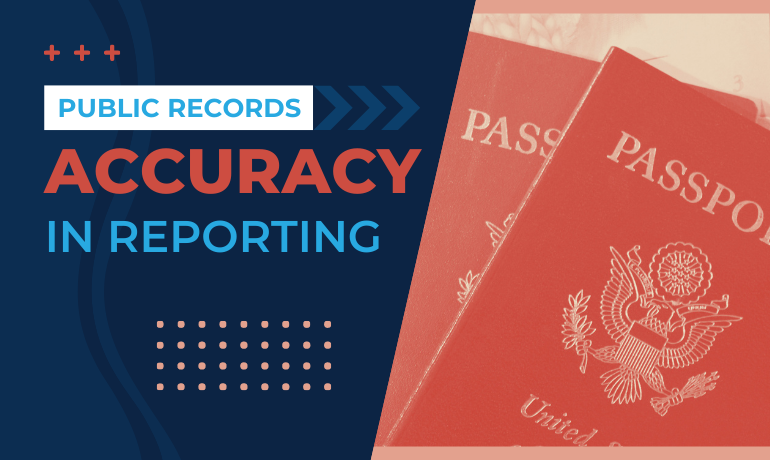Reporting guidelines for public records, according to PBSA Accreditation, require a minimum of two identifiers. To turn the clears and get every record you care about, time is the enemy. The FCRA requires that:
Whenever a consumer reporting agency prepares a consumer report it shall follow reasonable procedures to assure maximum possible accuracy of the information concerning the individual to whom the report relates. We’ll look at two cases that stand out. The first opinion summary of Erickson v. First Advantage reads as follows.
Plaintiff filed suit against First Advantage, claiming that the company’s upsetting report failed to comply with the Fair Credit Reporting Act’s “maximum possible accuracy” standard.
The Eleventh Circuit held that a report must be factually incorrect, objectively likely to mislead its intended user, or both to violate the maximal accuracy standard of the Fair Credit Reporting Act. The court concluded that First Advantage did not violate the Act and thus there was no willful violation or any actionable reputational harm. In this case, the report was factually accurate where it stated that a registered sex offender in Pennsylvania shared the plaintiff’s first and last name. Furthermore, the report did not wrongfully attribute that record to the plaintiff where it explained that the matching record was located using a name-only search and cautioned that the record might not be the plaintiff at all.
Erickson v. First Advantage Background Services Corp., No. 19-11587 (11th Cir. 2020)
With this intention, a basis of primary holding was lacking. To say nothing of the emotional response to this scenario, the ruling stands that a report must be factually incorrect, objectively likely to mislead its intended user, or both to violate the maximal accuracy standard of the Fair Credit Reporting Act.

The second scenario that we will examine regarding name matching and assuring reasonable accuracy in reporting guidelines was abandoned due to standing. On the whole, the court found no willful violation of FCRA with respect to common names: Plaintiff “fails to acknowledge that [CRA] implements procedures to verify the individual and the criminal records” and “corrected [Plaintiff’s] report one day after it received notice of the dispute.”
“Mr. Taylor cannot establish his injury, his actual damages resulting from a violation of the FCRA. As previously discussed, Mr. Taylor asserts only emotional distress and harm to reputation injuries and does not sufficiently evidence the circumstances surrounding those injuries.”
Taylor v. Selection Mgmt. Sys., Case No. 1:18-cv-224, 12 (S.D. Ohio Jan. 27, 2021)
The common denominator in these instances is the reporting guidelines for public records. A first and last name search should always be paired with another identifier or additional partial qualifiers, i.e. driver’s license, SSN, or passport. As can be seen, a name search is not assured but what does the rundown look like when those additional modifiers can be chosen.
Americans will be allowed to choose an X for gender on their passport applications and select their sex on Social Security cards by the end of 2022. Under those circumstances, what does the direction look like for precise reporting? Searchable databases will need to be renovated and have the capabilities to disseminate data across a vast array of agencies. Quite possible we may see new technologies to facilitate the overhaul. Given these points, employers may be put to test the limits of the strange relationship between risk and reward.




